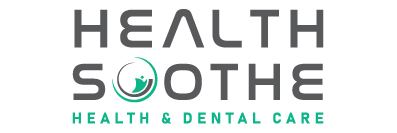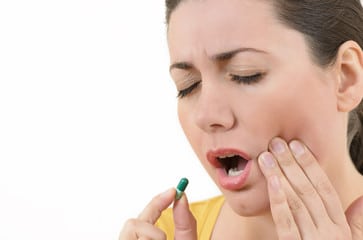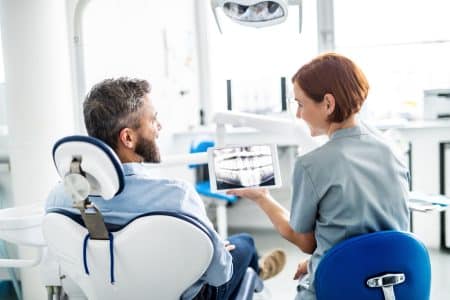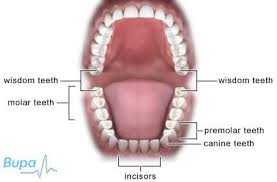Are you looking for the best options of antibiotics for a toothache? Here is our prescription of antibiotics for toothache as recommended by our dentists and experts
Toothache is always painful and it may disturb your day to day activities or ruin your sleep. The major problem is that there is no instant cure for a toothache. Over the counter, painkillers might relieve your pain temporary but it will re-occur again. Your best option is to use antibiotics to treat the pain for a few days if you want an instant cure for toothache.
Although, it is recommended to visit your dentist if your pain persists or ask your dentist before using any antibiotics listed in this article.
When Do You Need Antibiotic for Toothache?
You can use antibiotics for toothache as your first option followed by your dentist recommendation if you want To stop jaw or teeth pain. Your dentist can also use local anesthetic around your tooth to reduce the pain and if your face or gums are swollen, antibiotics are prescribed.
Also, your dentist may prescribe Antibiotics for you if he/she notices the presence of bacterium on the tissues around your teeth. This will prevent the bacterium from moving into the blood of individual patients who have an artificial or defective heart valve, which may lead to serious tooth infections.
Options of Antibiotics for Toothache
1. Penicillin V
It works against those bacteria that can cause tooth infection. It is an earlier version of penicillin which is very effective and hardly causes antibiotic resistance. The normal prescription is 4 doses spread throughout the day.
2. Amoxicillin
Amoxicillin belongs to the powerful family of antibiotics called penicillin, and It destroys bacteria that cause dental infection. The drug destroys the ability of the bacteria to produce certain bonds. It absorbs easily with foods especially if you take the tablet form and the daily intake is 3 to 4 doses as directed by the dentist.
3. Erythromycin
If you are allergic to penicillin these drug is the best option for you. Erythromycin belongs to a group of drugs called macrolide antibiotics and it is usually prescribed to treat:
- Dental abscesses
- Infections around wisdom teeth (pericoronitis)
- Tooth Infections that develop after dental surgery
The typical adult dosage is 250 milligrams to 500 milligrams every 6 hours, for 7 to 10 days. Dosing for children is based on body weight.
The side effects are stomach upsets.
4. Metronidazole
It is also known as Flagyl. metronidazole can get rid of the bacteria that is causing gum diseases. The downside is that you must not drink alcohol because it can cause stomach upset and make you vomit.
For these reasons, the antibiotics may not work effectively.
5. Clamoxyl
Another antibiotic for toothache is clamoxyl. It is a combination of clavulanic acid and amoxicillin. This makes perfect sense because it is resistant to breakdown by some bacteria. While it is effective against a wide range of bacteria, it can also wipe out the good bacteria the body needs.
6. Clindamycin (Cleocin HCL)
You can use this type of antibiotics to get rid of this specific bacteria called anaerobic. it is an effective treatment for dental abscesses. Clindamycin is the best option for you if you are allergic to erythromycin or penicillin.
7. Chlorhexidine
Chlorhexidine is also known as Peridex and PerioGard. It is one of the best antibiotic for toothache, and it can get rid of gingivitis and plaque in the mouth. Also used for patient that wants to undergo root canal therapy treatment. It comes as a mouthwash rinse that provides antimicrobial activity. Note it can cause teeth, dentures, fillings and other mouth appliances to stain.
8. Tetracyclines
They include doxycycline (marketed as Atridox) that is used in the treatment of periodontal disease. This drug can also cause permanent discoloration if it is used during tooth development phases (last month of pregnancy to 8 years of age). The teeth might turn brown yellow or gray.
9. Cephalosporins
According to MyNewSmile.com, cephalosporins may be prescribed to treat a tooth infection. This classification of drugs will disrupt the production of cell walls in the bacteria and cause them to die. Common reactions include diarrhea, nausea, and a rash. This antibiotic will also destroy some of the bacteria in the intestines, leading to diarrhea. Individuals can prevent this by including active live yogurt cultures in their diet, according to AskDrSears.com.
Precautions on Using Antibiotics for Toothache
Limitations of Antibiotics
Over the years antibiotics have been proven effective against most kind of bacteria and several infections. But they are not that effective against toothaches that occur as a result of irreversible pulpitis. In such cases, only pain relief drug can get rid of the pain.
Avoid Abusing of Antibiotics
Over the years the dentist has prescribed up to 10% of antibiotic and this can cause the individual to be resistance to antibiotics. Inappropriate antibiotics should be reduced. Therefore, antibiotics for toothache should only be prescribed when necessary.
A WORD FROM HEALTHSOOTHE
Antibiotics will destroy the bacteria, but it can't get inside a dead tooth. For this reason, the bacteria can hide inside the open canals where the antibiotics cannot reach which can potentially become serious if the bacteria are allowed to grow out of control. That is why is very important to see your dentist for treatment.
Although, Infections in the bone around the tooth or in the gum tissue can be treated successfully with antibiotics.
RELATED READING
- Snow Teeth Whitening: Your Smile’s New Best Friend
- Tooth infections: The best antibiotic for an infected tooth
- Nutrients and Foods Essential for Your Dental Health
- What Should I Ask My Dentist?
- Dental healthcare:12 Mistakes Dentists Wish You’d Stop Making Already
- Why Your teeth are so vital to your health
REFERENCES & RESOURCES
- Drugs.com: Flagyl
- Drugs.com: Amoxil
- Ask Dr. Sears: Colon Health 101
Am Isreal olabanji a dental assistant and public health professionals and has years of experience in assisting the dentist with all sorts of dental issues.
We regularly post timely and trustworthy medical information and news.
My goal is to enlighten everyone in all aspects of health towards participating in fitness, Dental care, healthy recipes, child health, obstetrics, and more.




